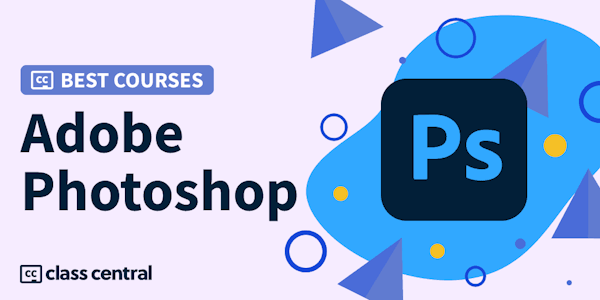Learn about the core features of Photoshop 2022, from interface basics to the key concepts that all Photoshop users need to know—regardless of how they use the program.
Overview
Syllabus
Introduction
- Welcome to Photoshop Essential Training
- Opening files in Photoshop
- Opening files from Adobe Bridge
- Opening files from Lightroom Classic
- Opening files from Lightroom
- Editing in Camera Raw and Lightroom vs. Photoshop
- A tour of the Photoshop interface
- Working with multiple documents
- Panning and zooming documents
- Arranging the panels you use most often
- Switching and saving workspaces
- Customizing the toolbar
- Modifying keyboard shortcuts to boost productivity
- Understanding file formats
- Mastering bit depth and color mode
- Choosing a color space
- Making sense of document size
- Using Image Size to change document dimensions
- Flexible editing using the History panel
- Saving and exporting documents
- A tour of the Camera Raw interface
- Removing distortions and cropping photos
- Working with profiles and presets
- Enhancing contrast, color, and tone
- Making adjustments to a portion of an image
- Converting to black and white and adding color toning
- Saving and opening files into Photoshop
- Using the Crop tool
- Straightening a crooked image
- Crop and change image size in one step
- Increasing canvas size
- Autofill with Content-Aware Crop
- Exploring layer basics
- Loading, selecting, aligning and distributing layers
- Working with layer groups and the Frame tool
- Merging and flattening layers
- Quickly exporting layers and groups
- Color basics
- Brush basics
- The Brushes and Brush Settings panels
- Creating and saving custom brushes
- Layer mask essentials
- Using gradients in masks to blend images
- Using the Marquee and Lasso tools
- Using Object Selection and the Quick Selection tools
- Using Select Subject and Color Range
- Selecting soft edge objects with Select and Mask
- Removing a halo using Select and Mask
- Selecting and replacing skies
- Removing distracting elements with the healing, patch, and clone tools
- The magic of Content-Aware Fill
- Transform without distorting using Content-Aware Scale and Move
- Removing larger elements from an image
- Introducing adjustment layers
- Adjusting color and tone with Levels and Curves
- Changing colors using Vibrance, Hue/Saturation, and Color Balance
- Converting to black and white and color toning with Gradient Maps
- Applying adjustment layers to multiple layers
- Blend Mode basics
- Using Multiply, Screen, Overlay and Soft Light
- Applying blend modes to adjustment layers
- Applying blend modes to multiple layers and groups
- Creating and editing Smart Objects
- Opening raw images as Smart Objects
- Replacing the contents of a Smart Object
- Scaling, skewing, and rotating layers using Free Transform
- Removing perspective distortion using Camera Raw
- Warping images
- Using Liquify to reshape an image
- Using Vanishing Point to paste in perspective
- Using Smart Objects to transform multiple layers as one
- Using Fill Layers to create a hand-painted look
- Using a gradient fill layer to add a color wash
- Creating and applying custom pattern fill layers
- Filter essentials
- Applying filters nondestructively with Smart Filters
- Sharpening images
- Creative blurring effects
- AI-assisted (neural) filters
- Creating painterly effects using Filter Gallery
- Applying Camera Raw as a filter
- Using the Shape tools
- Modify, duplicate, and use custom shapes
- Creating, saving, and masking images to shapes
- Duplicating shapes as Smart Objects
- The Curvature Pen tool
- Pen tool basics
- Drawing curves with the Pen tool
- Drawing complex paths
- Pen skills in practice
- Applying layer effects and styles
- Creative layer effects
- Exploring headline (point) type
- Using leading, kerning, and tracking
- Working with paragraph (area) type
- Library panel essentials
- Capturing patterns, colors, gradients, and shapes from an image
- Sharing libraries
- Working with Adobe Stock
- Creating artboards
- Adding content to artboards
- Five tips for working with artboards
- Saving and exporting artboards
- Creating animated GIFs
- Creating cinemagraphs
- Using Image Processor to batch resize and save files
- Exporting a multiple images to a single document
- Thanks for watching
Taught by
Julieanne Kost



